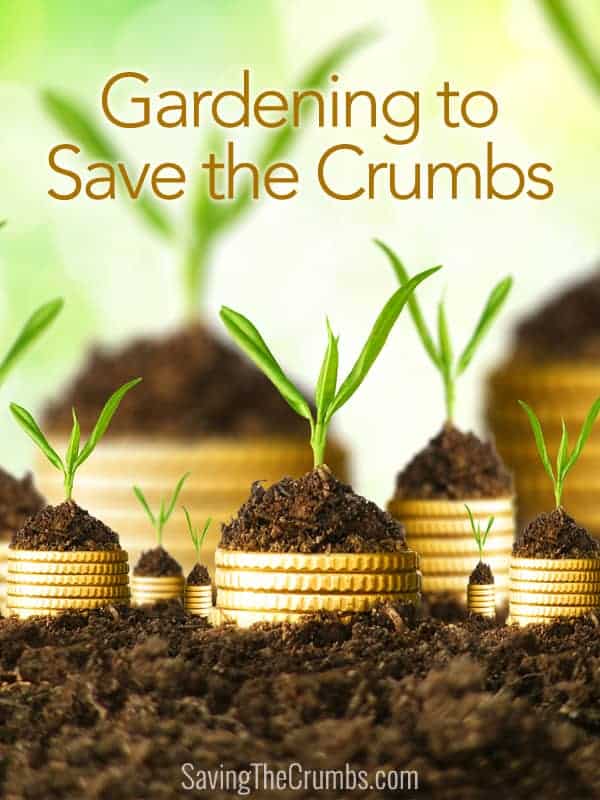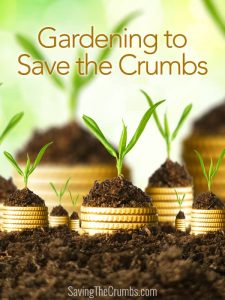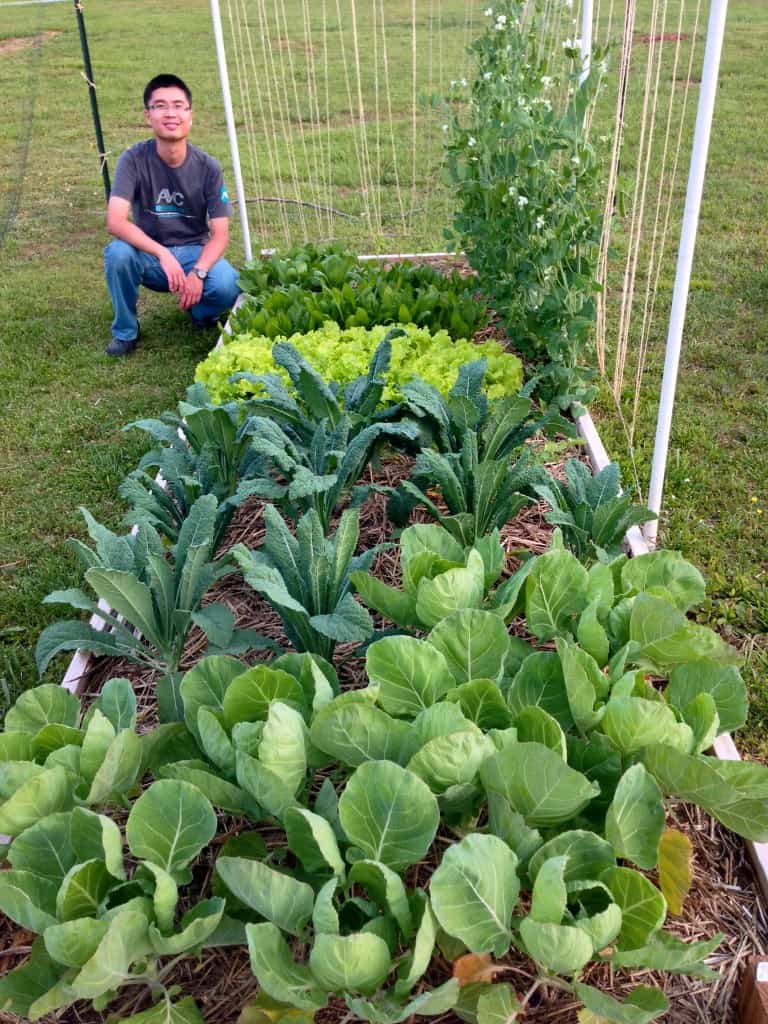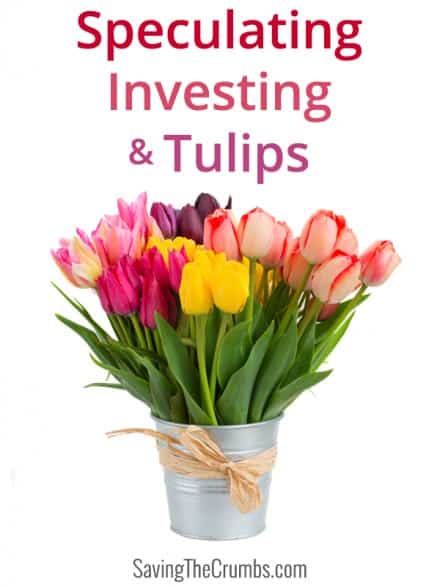When Deb and I moved into our first home last year, we knew we wanted to start our very own garden. We both have fathers with very green thumbs, so we were eager to see if we inherited that gene. We are patently amateurs and still have tons to learn, but we enjoy discovering new things and hope to share with you as we go along.
But are there economic benefits to gardening? If we look only at the amount of the grocery budget that can be offset from the food we harvest, it would be tough to say that a small-scale home garden is the cheaper way to eat once all the costs are factored in. However, I think that gardening can DEFINITELY help to save the crumbs when we step back to look at the bigger picture.
3 Ways Gardening Pays
- Healthy Living – Instead of working more so to afford healthier organic foods, health supplements, and gym membership, gardening can get you the benefits of all these for a lot less. Gardeners get sunshine, fresh air, and exercise which contributes to getting better rest at night while they grow their own nutritious organic food—all in one fell swoop! That nails nearly every one of the 8 laws of healthy living Deb outlined in a previous post! Not to mention, it’s a great way to unwind, de-stress, and get up close and personal with the beneficial microbes found in the soil.
- Reduces Waste – We compost our organic waste, and because of that we generate so little trash that we have no need for garbage pickup service. (This service isn’t included at our place because we don’t live within city limits, so we would need to pay extra if we want it.) Our weekly trash haul usually consists of a single plastic grocery bag that can be pitched when we stop at the gas station. The compost then becomes fertilizer for our garden. Less waste means more crumbs in my pocket.
- Stuff to Give Away – If you’ve ever gardened, you understand when I say that a garden inevitably causes you to be real generous. We smile knowingly whenever our friends offer us zucchini in the summer because we know they’ve got it coming out of their ears. We made friends with all our neighbors this last summer as we gave away our own excess cucumbers too. If you plan ahead, canned foods (pickles, apple sauce, peaches, pears, tomatoes, etc.) can also make great gifts during the holiday season.
But What About the Groceries?
These reasons are nice and all, but can the garden actually help with our grocery budget–especially a small scale one? I think it can as long as we apply some strategy in determining what to plant. Here are some ideas to get you started:
- Plant things that are expensive to buy. – Potatoes on sale at Aldi can be as cheap as $1.49 for 10 lbs. It’ll be really hard for me as a home gardener to beat that price growing it myself. However, herbs often cost several dollars PER OUNCE, but can easily be grown at home. We discovered that basil grows extraordinarily well where we live, and yet it’s super expensive to buy. So needless to say, we eat a lot of pesto! (Check out Deb’s easy pesto recipe here.) Do a little homework to determine what expensive vegetables, herbs, or fruits can be grown in your area for maximum savings.
- Plant things that are hard to find. – Coming from a Chinese family, there are all sorts of exotic vegetables that we simply can’t find in the traditional supermarkets. Asian markets are far away and may not always carry what we want, so what to do? Grow them ourselves! This doesn’t just apply to special vegetables with names we can’t pronounce, but can also apply to unique, hard-to-find varieties of vegetables out there. (Heirloom tomatoes, anyone?)
- Plant things that no one else is growing. – If any of your family are growing cucumbers, DON’T GROW CUCUMBERS. If any of your friends are growing tomatoes, DON’T GROW TOMATOES. If your worst enemy is growing zucchini, DON’T GROW ZUCCHINI. All of them will have so much, they will probably be leaving them at your doorstep at midnight to make sure you don’t refuse. Grow stuff that others aren’t growing, so the bartering system can work to your advantage.
- Plant things that you would actually eat. – Sometime ago my dad grew a loquat tree in our backyard and it became absolutely LOADED with fruit. Only one problem. None of us liked loquat! So we ended up with loads of rotting fruit even as my dad force-fed himself loquat everyday. I think you get the principle this story illustrates, but just don’t use this as excuse to not grow ANY vegetables!
- Plant things that serve multiple purposes. – Deb shared the story of our sweet potato experiment last year, and even though sweet potatoes aren’t super expensive to buy in the store, we got a lot more benefit out of actually growing the plant than simply buying the tubers. It acted as a ground cover that prevented erosion and controlled weeds at the same time, it produced edible leaves as a yummy summer green, and in the end the sweet potatoes themselves almost seemed like a bonus.
- Plant things that can be preserved. – I can be gorging on watermelon until I’m sick in the summer but then be craving it during winter. Often I wish that I could just save the surplus for later. Not everything can be easily preserved for future use, so growing with that in mind can help save during the lean months. Think canning, pickling, freezing, and root cellaring.
- Plant things that don’t require a lot of work. – One of the inescapable facts of gardening is that it takes work. Food doesn’t grow by itself. So for the recreational gardener like us who aren’t market farmers, we need to balance the time required with the intended results. I learned the hard way this past summer that some plants take a whole lot more attention than others to thrive. (Let’s just say that my Brussels Sprouts fed a whole generation of cabbage moths.) Consider your lifestyle and plant things that can fit within the time that you’re able to devote to it. The worst feeling in the world is to spend lots of time starting a garden only to have it turn into a jungle because we bit off more than we can chew.
Here’s a picture of me and part of my spring garden last year…before the arrival of the cabbage moths…
Time to Get Started?
It might seem strange that I have gardening on my mind now that it’s December. Even though the growing season for us is over, this actually is best time for us to start preparing for next year. I’ll share a little bit why in our next post.
But before that, I’m curious to hear YOUR thoughts on gardening. What have you tried growing before? Why did you choose that? How has gardening affected your grocery bill? Please share with us in the comments below!








